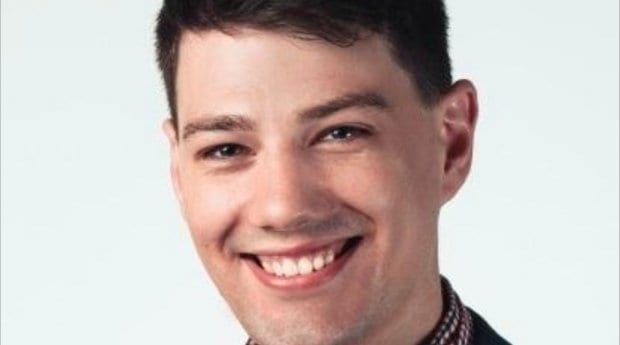When Trevor Loke talks about his work with the Vision Vancouver Board of Parks and Recreation he almost always uses “we” instead of “I.” It’s a trait that reflects his ingrained sense of community.
As a gay teen growing up in Surrey, Loke turned to the Cutting Edges hockey club to find a place where he felt included and supported. The club became like a family for Loke, whose heavy involvement led him to become its vice-president.
His work with Cutting Edges is what first led him to the park board. An annual fundraiser that subsidized players who couldn’t afford fees was nearly cancelled when the 2010 Olympics forced them out of their venue. With only two weeks before the event, the club turned to the park board for a solution. With the board advocating for them, they managed to secure a space and host a successful event.
Loke was impressed at how the board managed to work with Cutting Edges to turn around the negative situation, so when it was suggested that he might be a good fit for civic politics, he gave it real consideration. Despite his own reservations about his age and experience — at 22, Loke would become the youngest person ever elected in Vancouver — he rose to the challenge and hasn’t slowed down since.
In his three years serving on the park board, Loke has modelled his political career on that first interaction with the group. He feels that approach is most effective when the board works in tandem with the communities it serves.
“I can’t do anything on my own,” he says. “For me, it’s about finding the right people, facilitating the best I can in my role and then putting my hands up and watching the process unfold.”
One of the highest-profile examples of this approach is the work Loke did with the Trans and Gender-Variant Inclusion Working Group. That group grew out of the acknowledgment that there were people in Vancouver who were extremely marginalized and that they knew what they needed to become empowered better than the politicians.
Loke knew he couldn’t lead that process because he could only guess at what the experiences of those communities might look like. Instead, he made himself available for resources and let the community members take the wheel. Since its formation in 2013, the working group has been responsible for all the research and public policy recommendations and is now guiding staff on implementation.
“Community members are actually leading the way, and that’s been a very effective thing for us,” Loke says. “The result of that is that you get more people involved and you have a more active, healthy society.”
It’s also been Loke’s experience that what benefits one group benefits many. An increase in private washrooms provides safety and accessibility regardless of gender, but it also provides privacy for families, seniors, people with disabilities, or anyone who might not be comfortable using other facilities. Loke wants to continue to find alignments between communities and to create solutions that make life better for everyone.
In a city of more than 600,000 people, Loke says he has to be continually educating himself. He makes a strong connection between the values of elected politicians and the policy outcomes of their terms. For him, this means forming strong ties between the park board and the communities in Vancouver.
“It just speaks to the importance of having politicians who really believe in the communities they represent and empowering them to be the decision makers rather than interfere in the process of what the policy should look like,” he says.

 Why you can trust Xtra
Why you can trust Xtra


